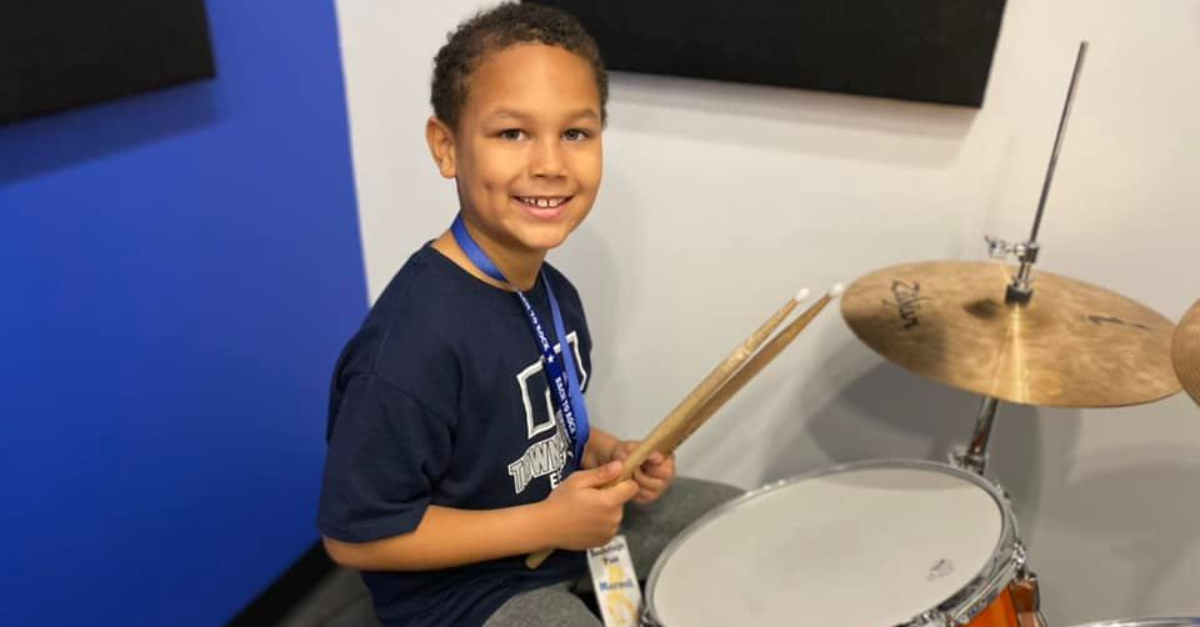What is the Best Age for Kids to Start Drum Lessons?

When it comes to nurturing musical talents in children, parents often wonder about the right time to start. This is particularly true for instruments like drums, which are known for requiring endurance and physical energy. In this blog, we’ll explore the ideal age for kids to embark on their drumming journey and the factors that influence this decision.
What is the Ideal Age to Learn Drums?
The consensus among music educators is that children can start learning drums around the age of 6 to 7 years. This is primarily because, by this age, they have developed better motor skills and can follow instructions more effectively. However, this isn’t a one-size-fits-all answer, as several factors come into play.
Key Factors to Consider:
Physical Development: Drumming requires a certain level of physical coordination and strength. Kids need to be able to reach all parts of the drum set and handle the sticks properly.
By age 6 or 7, most kids have better motor skills needed for drumming, like using drumsticks and coordinating limb movements. This coordination involves more than just hitting the drum. It also requires syncing hand and foot movements. This skill typically develops at this age.
Another factor to consider is the physical size of the child in relation to a standard drum set. Around this age, many children are large enough to comfortably reach all parts of the drum kit, which can be physically challenging for younger or smaller children.
Concentration and Focus: Drum lessons require kids to concentrate for extended periods. In addition to motor skills, children in this age group generally have a better capacity to follow instructions and maintain concentration during lessons.
Drumming requires understanding and following rhythmic patterns, which can be challenging if attention spans are short. By ages 6 to 7, children are more likely to be able to focus for the length of a drum lesson (usually about 30 minutes), and understand the basic concepts of rhythm and timing.
Related: How long will it take my child to learn the guitar?
Interest in Music and Increased Skills: A child who shows a keen interest in music and rhythm, often tapping to beats, might be more inclined and motivated to learn the drums.
A child who enjoys music will likely find joy in the learning process itself, making drum lessons something they look forward to rather than a chore. This enjoyment can lead to more consistent practice and a positive attitude towards overcoming challenges.
Emotional Maturity: The discipline to practice regularly and handle both success and frustration is crucial in learning any musical instrument.
Drumming can be challenging, especially in the beginning stages. A child with a higher level of emotional maturity is more likely to demonstrate patience when learning new rhythms and techniques, and perseverance in practicing regularly, even when progress seems slow.
Transferable Skills: It’s also worth noting that this age is often when children start formal education, where they begin to learn skills that are transferable to drumming.
These include basic counting, which is essential for understanding rhythms, and the ability to read and interpret simple instructions, which can later translate to reading music.
Benefits of Starting Early:
Starting drum lessons at a younger age can have several benefits:
Enhanced Coordination: Learning drums can significantly improve hand-eye coordination and fine motor skills.
Musical Foundation: Early exposure to music education can foster a lifelong love and understanding of music.
Boost in Confidence: Mastering rhythms and participating in performances can enhance a child’s self-esteem.
Related: What’s the Best Age to Start Music Lessons?
But What If They’re Younger?
For kids younger than 6, the focus of music lessons can be on rhythm games and basic percussion instruments like hand drums or tambourines. These activities can build a foundation for future drumming lessons.
Programs like Fun with Music, Rock and Roll, or Rock City are designed to help younger musicians learn the basics, explore different instruments, and prepare them for reading music and learning more complex skills further in their music education journey.
While 6 to 7 years is a general guideline, the best age for a child to start drum lessons depends on their individual development and interest. Encouraging a love for music from an early age, regardless of the instrument, sets the stage for a potentially rewarding musical journey.
What drum lessons are available at Bach to Rock?
Early Childhood Music Classes: Children as young as 1 year old can start with the foundations of learning to play an instrument. From learning rhythm, to progressing to playing the hand drum, our early childhood classes prepare students for beginner drum lessons.
Beginner Drumming Classes: Want to give your child a head start on the drums? Our Drums 101 classes build a foundation of core skills for aspiring drummers. After this 10-week beginner class, students will learn the fundamentals of an awesome drummer.
Private Drumming Lessons: Starting at age 7, students can build their skills in one-on-one private lessons. Our private drumming and percussion lessons come with direct instruction, feedback, and encouragement.
Semi-Private Drumming Lessons: Also starting at age 7, we offer semi-private lessons for groups of 2 students. Learning to play drums with a friend can double the fun of music lessons!
Join a Band: Effectively paired with private lessons, we invite our students as young as 7 years old to join a band at Bach to Rock. They’ll learn the art of performing and playing alongside their bandmates to play their favorite songs at local venues.
If your child shows an interest in drumming, consider arranging a trial lesson at your local Bach to Rock so they can start learning. It’s a great way to gauge their readiness and enthusiasm for the instrument! From beginner classes to our band program, there are many flexible options for every learner.
